- Home
- Alexandre Dumas
La tulipe noire. English Page 2
La tulipe noire. English Read online
Page 2
Chapter 2. The Two Brothers
As the fair Rosa, with foreboding doubt, had foretold, so it happened.Whilst John de Witt was climbing the narrow winding stairs which led tothe prison of his brother Cornelius, the burghers did their best to havethe troop of Tilly, which was in their way, removed.
Seeing this disposition, King Mob, who fully appreciated the laudableintentions of his own beloved militia, shouted most lustily,--
"Hurrah for the burghers!"
As to Count Tilly, who was as prudent as he was firm, he began to parleywith the burghers, under the protection of the cocked pistols of hisdragoons, explaining to the valiant townsmen, that his order from theStates commanded him to guard the prison and its approaches with threecompanies.
"Wherefore such an order? Why guard the prison?" cried the Orangists.
"Stop," replied the Count, "there you at once ask me more than Ican tell you. I was told, 'Guard the prison,' and I guard it. You,gentlemen, who are almost military men yourselves, you are aware that anorder must never be gainsaid."
"But this order has been given to you that the traitors may be enabledto leave the town."
"Very possibly, as the traitors are condemned to exile," replied Tilly.
"But who has given this order?"
"The States, to be sure!"
"The States are traitors."
"I don't know anything about that!"
"And you are a traitor yourself!"
"I?"
"Yes, you."
"Well, as to that, let us understand each other gentlemen. Whom shouldI betray? The States? Why, I cannot betray them, whilst, being in theirpay, I faithfully obey their orders."
As the Count was so indisputably in the right that it was impossibleto argue against him, the mob answered only by redoubled clamour andhorrible threats, to which the Count opposed the most perfect urbanity.
"Gentlemen," he said, "uncock your muskets, one of them may go off byaccident; and if the shot chanced to wound one of my men, we shouldknock over a couple of hundreds of yours, for which we should, indeed,be very sorry, but you even more so; especially as such a thing isneither contemplated by you nor by myself."
"If you did that," cried the burghers, "we should have a pop at you,too."
"Of course you would; but suppose you killed every man Jack of us, thosewhom we should have killed would not, for all that, be less dead."
"Then leave the place to us, and you will perform the part of a goodcitizen."
"First of all," said the Count, "I am not a citizen, but an officer,which is a very different thing; and secondly, I am not a Hollander, buta Frenchman, which is more different still. I have to do with no one butthe States, by whom I am paid; let me see an order from them to leavethe place to you, and I shall only be too glad to wheel off in aninstant, as I am confoundedly bored here."
"Yes, yes!" cried a hundred voices; the din of which was immediatelyswelled by five hundred others; "let us march to the Town-hall; let usgo and see the deputies! Come along! come along!"
"That's it," Tilly muttered between his teeth, as he saw the mostviolent among the crowd turning away; "go and ask for a meanness atthe Town-hall, and you will see whether they will grant it; go, my finefellows, go!"
The worthy officer relied on the honour of the magistrates, who, ontheir side, relied on his honour as a soldier.
"I say, Captain," the first lieutenant whispered into the ear of theCount, "I hope the deputies will give these madmen a flat refusal;but, after all, it would do no harm if they would send us somereinforcement."
In the meanwhile, John de Witt, whom we left climbing the stairs, afterthe conversation with the jailer Gryphus and his daughter Rosa, hadreached the door of the cell, where on a mattress his brother Corneliuswas resting, after having undergone the preparatory degrees of thetorture. The sentence of banishment having been pronounced, there was nooccasion for inflicting the torture extraordinary.
Cornelius was stretched on his couch, with broken wrists and crushedfingers. He had not confessed a crime of which he was not guilty; andnow, after three days of agony, he once more breathed freely, on beinginformed that the judges, from whom he had expected death, were onlycondemning him to exile.
Endowed with an iron frame and a stout heart, how would he havedisappointed his enemies if they could only have seen, in the dark cellof the Buytenhof, his pale face lit up by the smile of the martyr, whoforgets the dross of this earth after having obtained a glimpse of thebright glory of heaven.
The warden, indeed, had already recovered his full strength, much moreowing to the force of his own strong will than to actual aid; and he wascalculating how long the formalities of the law would still detain himin prison.
This was just at the very moment when the mingled shouts of theburgher guard and of the mob were raging against the two brothers, andthreatening Captain Tilly, who served as a rampart to them. This noise,which roared outside of the walls of the prison, as the surf dashingagainst the rocks, now reached the ears of the prisoner.
But, threatening as it sounded, Cornelius appeared not to deem it worthhis while to inquire after its cause; nor did he get up to look outof the narrow grated window, which gave access to the light and to thenoise of the world without.
He was so absorbed in his never-ceasing pain that it had almost become ahabit with him. He felt with such delight the bonds which connected hisimmortal being with his perishable frame gradually loosening, that itseemed to him as if his spirit, freed from the trammels of the body,were hovering above it, like the expiring flame which rises from thehalf-extinguished embers.
He also thought of his brother; and whilst the latter was thus vividlypresent to his mind the door opened, and John entered, hurrying to thebedside of the prisoner, who stretched out his broken limbs and hishands tied up in bandages towards that glorious brother, whom he nowexcelled, not in services rendered to the country, but in the hatredwhich the Dutch bore him.
John tenderly kissed his brother on the forehead, and put his sore handsgently back on the mattress.
"Cornelius, my poor brother, you are suffering great pain, are you not?"
"I am suffering no longer, since I see you, my brother."
"Oh, my poor dear Cornelius! I feel most wretched to see you in such astate."
"And, indeed, I have thought more of you than of myself; and whilst theywere torturing me, I never thought of uttering a complaint, except once,to say, 'Poor brother!' But now that you are here, let us forget all.You are coming to take me away, are you not?"
"I am."
"I am quite healed; help me to get up, and you shall see how I canwalk."
"You will not have to walk far, as I have my coach near the pond, behindTilly's dragoons."
"Tilly's dragoons! What are they near the pond for?"
"Well," said the Grand Pensionary with a melancholy smile which washabitual to him, "the gentlemen at the Town-hall expect that thepeople at the Hague would like to see you depart, and there is someapprehension of a tumult."
"Of a tumult?" replied Cornelius, fixing his eyes on his perplexedbrother; "a tumult?"
"Yes, Cornelius."
"Oh! that's what I heard just now," said the prisoner, as if speaking tohimself. Then, turning to his brother, he continued,--
"Are there many persons down before the prison."
"Yes, my brother, there are."
"But then, to come here to me----"
"Well?"
"How is it that they have allowed you to pass?"
"You know well that we are not very popular, Cornelius," said the GrandPensionary, with gloomy bitterness. "I have made my way through allsorts of bystreets and alleys."
"You hid yourself, John?"
"I wished to reach you without loss of time, and I did what people willdo in politics, or on the sea when the wind is against them,--I tacked."
At this moment the noise in the square below was heard to roar withincreasing fury. Tilly was parleying with the burghers.
"Well, well," said Cornelius, "you are a very skilful pilot, John; but Idoubt whether you will as safely guide your brother out of the Buytenhofin the midst of this gale, and through the raging surf of popularhatred, as you did the fleet of Van Tromp past the shoals of the Scheldtto Antwerp."
"With the help of God, Cornelius, we'll at least try," answered John;"but, first of all, a word with you."
"Speak!"
The shouts began anew.
"Hark, hark!" continued Cornelius, "how angry those people are! Is itagainst you, or against me?"
"I should say it is against us both, Cornelius. I told you, my dearbrother, that the Orange party, while assailing us with their absurdcalumnies, have also made it a reproach against us that we havenegotiated with France."
"What blockheads they are!"
"But, indeed, they reproach us with it."
"And yet, if these negotiations had been successful, they would haveprevented the defeats of Rees, Orsay, Wesel, and Rheinberg; the Rhinewould not have been crossed, and Holland might still consider herselfinvincible in the midst of her marshes and canals."
"All this is quite true, my dear Cornelius, but still more certainit is, that if at this moment our correspondence with the Marquis deLouvois were discovered, skilful pilot as I am, I should not be able tosave the frail barque which is to carry the brothers De Witt and theirfortunes out of Holland. That correspondence, which might prove tohonest people how dearly I love my country, and what sacrifices I haveoffered to make for its liberty and glory, would be ruin to us if itfell into the hands of the Orange party. I hope you have burned theletters before you left Dort to join me at the Hague."
"My dear brother," Cornelius answered, "your correspondence with M. deLouvois affords ample proof of your having been of late the greatest,most generous, and most able citizen of the Seven United Provinces. Irejoice in the glory of my country; and particularly do I rejoicein your glory, John. I have taken good care not to burn thatcorrespondence."
"Then we are lost, as far as this life is concerned," quietly said theGrand Pensionary, approaching the window.
"No, on the contrary, John, we shall at the same time save our lives andregain our popularity."
"But what have you done with these letters?"
"I have intrusted them to the care of Cornelius van Baerle, my godson,whom you know, and who lives at Dort."
"Poor honest Van Baerle! who knows so much, and yet thinks of nothingbut of flowers and of God who made them. You have intrusted him withthis fatal secret; it will be his ruin, poor soul!"
"His ruin?"
"Yes, for he will either be strong or he will be weak. If he isstrong, he will, when he hears of what has happened to us, boast ofour acquaintance; if he is weak, he will be afraid on account of hisconnection with us: if he is strong, he will betray the secret by hisboldness; if he is weak, he will allow it to be forced from him. Ineither case he is lost, and so are we. Let us, therefore, fly, fly, aslong as there is still time."
Cornelius de Witt, raising himself on his couch, and grasping thehand of his brother, who shuddered at the touch of his linen bandages,replied,--
"Do not I know my godson? have not I been enabled to read every thoughtin Van Baerle's mind, and every sentiment in his heart? You ask whetherhe is strong or weak. He is neither the one nor the other; but that isnot now the question. The principal point is, that he is sure not todivulge the secret, for the very good reason that he does not know ithimself."
John turned round in surprise.
"You must know, my dear brother, that I have been trained in the schoolof that distinguished politician John de Witt; and I repeat to you,that Van Baerle is not aware of the nature and importance of the depositwhich I have intrusted to him."
"Quick then," cried John, "as there is still time, let us convey to himdirections to burn the parcel."
"Through whom?"
"Through my servant Craeke, who was to have accompanied us on horseback,and who has entered the prison with me, to assist you downstairs."
"Consider well before having those precious documents burnt, John!"
"I consider, above all things, that the brothers De Witt mustnecessarily save their lives, to be able to save their character. Ifwe are dead, who will defend us? Who will have fully understood ourintentions?"
"You expect, then, that they would kill us if those papers were found?"
John, without answering, pointed with his hand to the square, whence, atthat very moment, fierce shouts and savage yells made themselves heard.
"Yes, yes," said Cornelius, "I hear these shouts very plainly, but whatis their meaning?"
John opened the window.
"Death to the traitors!" howled the populace.
"Do you hear now, Cornelius?"
"To the traitors! that means us!" said the prisoner, raising his eyes toheaven and shrugging his shoulders.
"Yes, it means us," repeated John.
"Where is Craeke?"
"At the door of your cell, I suppose."
"Let him enter then."
John opened the door; the faithful servant was waiting on the threshold.
"Come in, Craeke, and mind well what my brother will tell you."
"No, John; it will not suffice to send a verbal message; unfortunately,I shall be obliged to write."
"And why that?"
"Because Van Baerle will neither give up the parcel nor burn it withouta special command to do so."
"But will you be able to write, poor old fellow?" John asked, with alook on the scorched and bruised hands of the unfortunate sufferer.
"If I had pen and ink you would soon see," said Cornelius.
"Here is a pencil, at any rate."
"Have you any paper? for they have left me nothing."
"Here, take this Bible, and tear out the fly-leaf."
"Very well, that will do."
"But your writing will be illegible."
"Just leave me alone for that," said Cornelius. "The executioners haveindeed pinched me badly enough, but my hand will not tremble once intracing the few lines which are requisite."
And really Cornelius took the pencil and began to write, when throughthe white linen bandages drops of blood oozed out which the pressure ofthe fingers against the pencil squeezed from the raw flesh.
A cold sweat stood on the brow of the Grand Pensionary.
Cornelius wrote:--
"My dear Godson,--
"Burn the parcel which I have intrusted to you. Burn it without lookingat it, and without opening it, so that its contents may for ever remainunknown to yourself. Secrets of this description are death to thosewith whom they are deposited. Burn it, and you will have saved John andCornelius de Witt.
"Farewell, and love me.
"Cornelius de Witt
"August 20th, 1672."
John, with tears in his eyes, wiped off a drop of the noble blood whichhad soiled the leaf, and, after having handed the despatch to Craekewith a last direction, returned to Cornelius, who seemed overcome byintense pain, and near fainting.
"Now," said he, "when honest Craeke sounds his coxswain's whistle, itwill be a signal of his being clear of the crowd, and of his havingreached the other side of the pond. And then it will be our turn todepart."
Five minutes had not elapsed, before a long and shrill whistle was heardthrough the din and noise of the square of the Buytenhof.
John gratefully raised his eyes to heaven.
"And now," said he, "let us off, Cornelius."

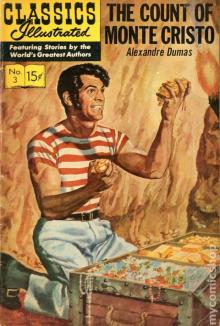 The Count of Monte Cristo, Illustrated
The Count of Monte Cristo, Illustrated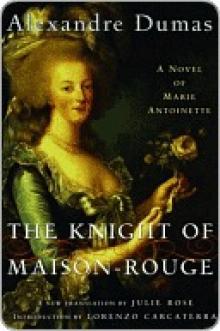 Knight of Maison-Rouge
Knight of Maison-Rouge![The Three Musketeers - Alexandre Dumas - [Full Version] - (ANNOTATED) Read online](http://i1.bookreadfree.com/14/the_three_musketeers_-_alexandre_dumas_-_[full_version]_-_annotated_preview.jpg) The Three Musketeers - Alexandre Dumas - [Full Version] - (ANNOTATED)
The Three Musketeers - Alexandre Dumas - [Full Version] - (ANNOTATED)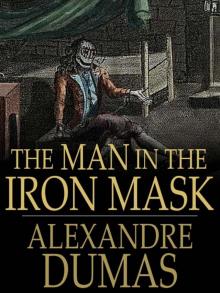 The Man in the Iron Mask
The Man in the Iron Mask The Count of Monte Cristo (Penguin Classics eBook)
The Count of Monte Cristo (Penguin Classics eBook)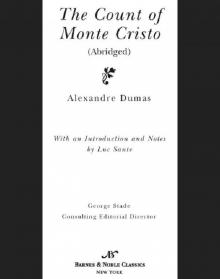 Count of Monte Cristo (abridged) (Barnes & Noble Classics Series)
Count of Monte Cristo (abridged) (Barnes & Noble Classics Series) The Women's War
The Women's War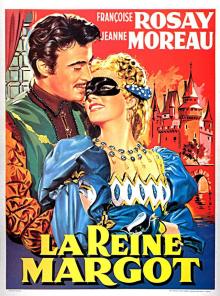 La reine Margot. English
La reine Margot. English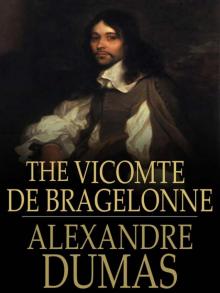 The Vicomte de Bragelonne
The Vicomte de Bragelonne__english_preview.jpg) La dame aux camélias (Novel). English
La dame aux camélias (Novel). English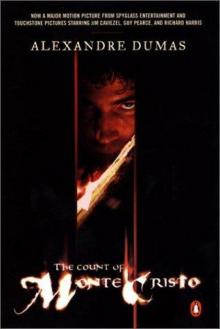 The Count of Monte Cristo
The Count of Monte Cristo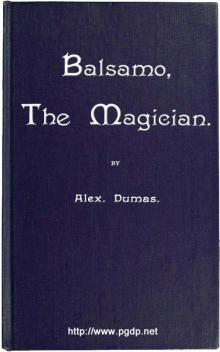 Balsamo, the Magician; or, The Memoirs of a Physician
Balsamo, the Magician; or, The Memoirs of a Physician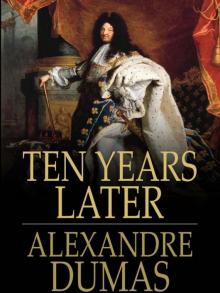 Ten Years Later
Ten Years Later The Romance of Violette
The Romance of Violette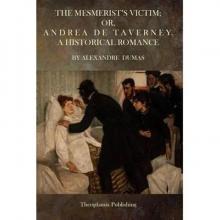 The Mesmerist's Victim
The Mesmerist's Victim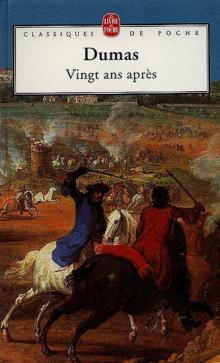 Vingt ans après. English
Vingt ans après. English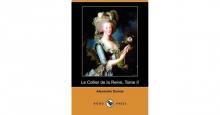 Le collier de la reine. English
Le collier de la reine. English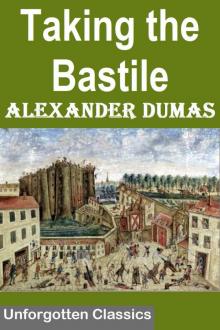 Taking the Bastile; Or, Pitou the Peasant
Taking the Bastile; Or, Pitou the Peasant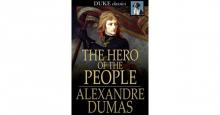 The Hero of the People: A Historical Romance of Love, Liberty and Loyalty
The Hero of the People: A Historical Romance of Love, Liberty and Loyalty Louise de la Valliere
Louise de la Valliere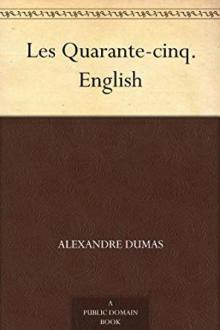 Les Quarante-cinq. English
Les Quarante-cinq. English Ange Pitou (Volume 1)
Ange Pitou (Volume 1)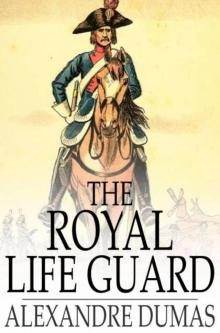 The Royal Life Guard; or, the flight of the royal family.
The Royal Life Guard; or, the flight of the royal family.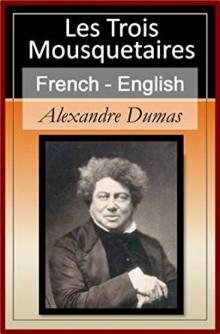 Les trois mousquetaires. English
Les trois mousquetaires. English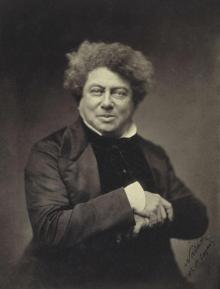 Une fille du régent. English
Une fille du régent. English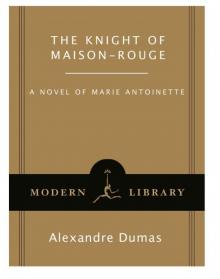 The Knight of Maison-Rouge
The Knight of Maison-Rouge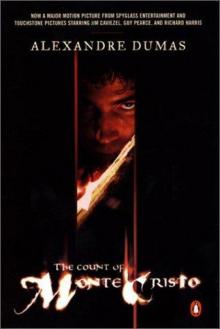 The Count of Monte Cristo (Unabridged Penguin)
The Count of Monte Cristo (Unabridged Penguin) Ange Pitou
Ange Pitou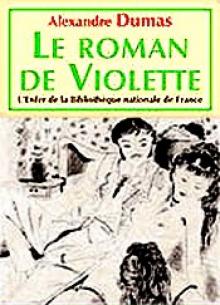 The Romance of Violette (vintage erotica)
The Romance of Violette (vintage erotica)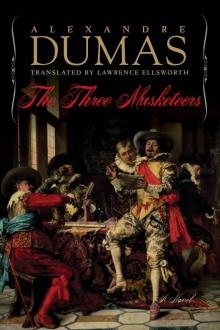 The Three Musketeers
The Three Musketeers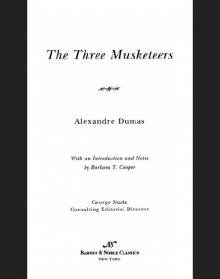 Three Musketeers (Barnes & Noble Classics Series)
Three Musketeers (Barnes & Noble Classics Series)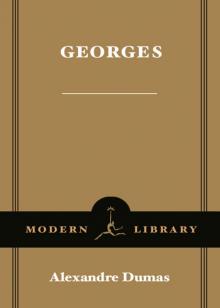 Georges
Georges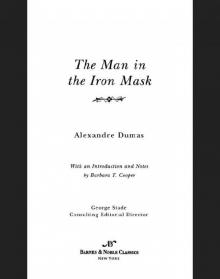 Man in the Iron Mask (Barnes & Noble Classics Series)
Man in the Iron Mask (Barnes & Noble Classics Series)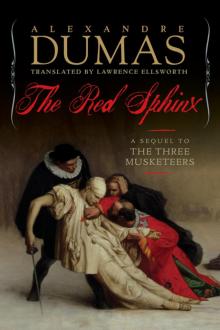 The Red Sphinx
The Red Sphinx